Culture
‘Transmitting Culture’ at Christmas: Speaking with Curator Dr. George Johnson
By: Emily Votaw
Posted on:
Through the eyes of historian and retired history teacher, Dr. George Johnson, the holidays are far more than a collection of weeks starting in November and lasting through the last week of December. They are, instead, a reflection of the time period and culture in which they are celebrated, a reflection that is touched by the human condition in more ways than one.
Each year, Johnson and his wife spend months curating a holiday exhibition for the Decorative Arts Center of Ohio. The title for this year’s exhibition is “Christmas with the Ohio Presidents,” which ties in nicely with the exhibition on display through the end of the year in the upper portion of the museum, “The Ohio Presidents: Surprising Legacies.” Both exhibitions are on display through December 29, 2019.
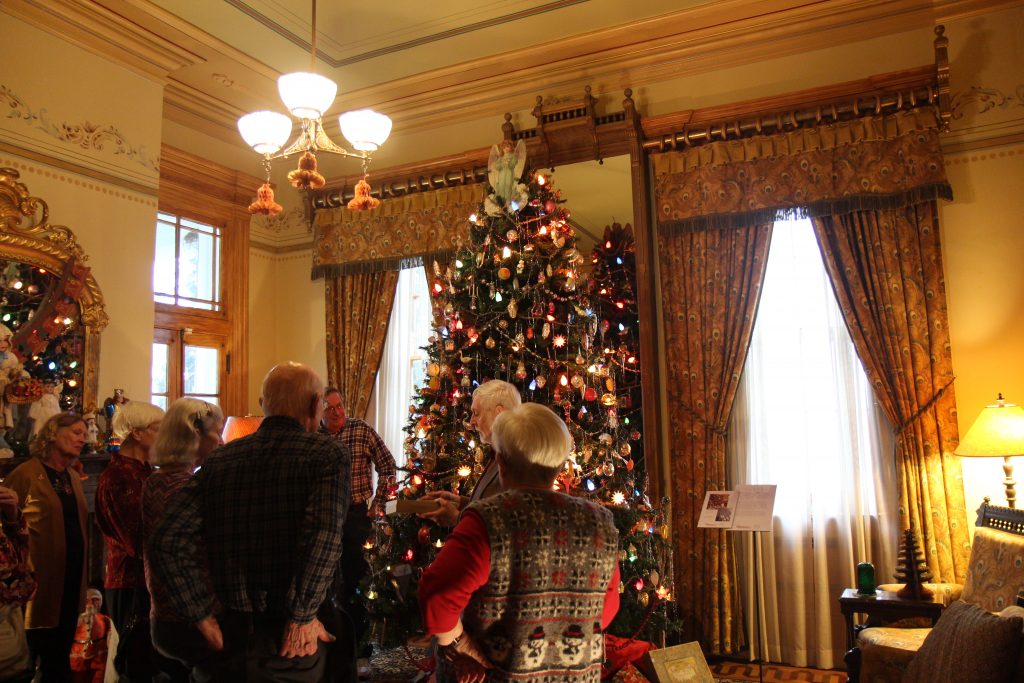
Johnson has put together eight trees, one each to represent the legacies of William Henry Harrison, Ulysses S. Grant, Rutherford B. Hayes, James A. Garfield, Benjamin Harrison, William McKinley, William H. Taft, and Warren G. Harding. In addition to completely decorated, historically accurate trees, Johnson has also furnished the Decorative Arts Center with additional decorations, including a Spanish nativity from the late 1700s, and gorgeous chromolithographs, some of which are well over 100 years old.
Intriguingly, not every U.S. president has had an official White House Christmas tree, although perhaps it is more intriguing to consider that the immediate assumption to make is that every one of the Presidents would have – Christmas trees did not become popular in the United States until the early mid-20th Century, after all.
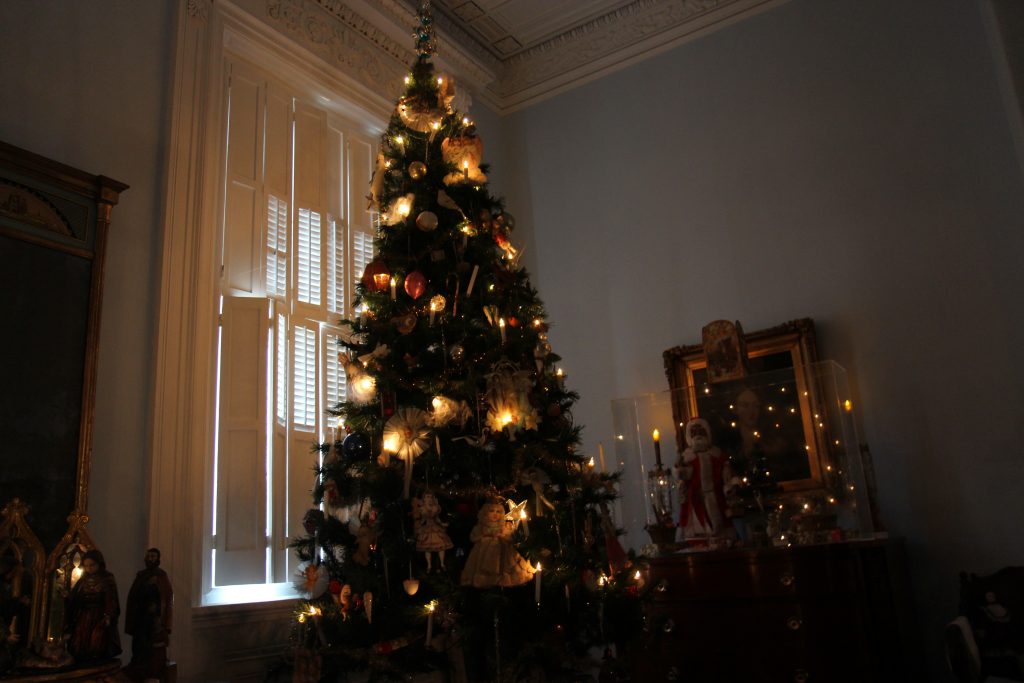
“We talked about things and we finally decided that we would do eight trees, one for each of the presidents, and we would decorate that tree either as it was described in the White House while they were president, or we would do it as a tree as described for that time period,” said Johnson in an interview with WOUB a few days after the exhibition was put up. “So all of them are accurate to that specific time period, whether or not that particular president put a tree up in the White House. Now, two of our presidents, William Henry Harrison and Garfield, did not live long enough to have the first Christmas in the White House. McKinley had a tree. We don’t know much about it except that he received hate mail.”
Johnson said that some of the negative feedback that McKinley received was well warranted, the chief complaint being that having a Christmas tree in the White House was advocating for the further cutting down and killing of young pine trees – and this was during the 1890s, when some five million trees were exported from Vermont alone for festive purposes. The other issue people had with McKinley’s tree was strictly xenophobic.
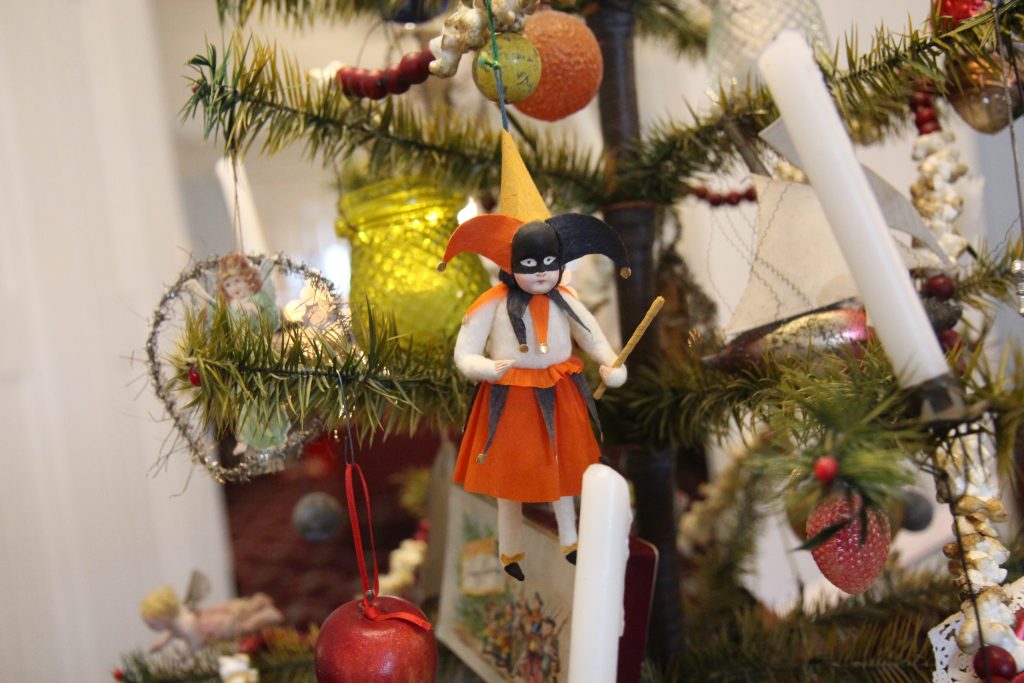
“(People were concerned that) a Christmas tree was not an American tradition, it’s a German tradition. They felt it wasn’t American to do this,” said Johnson. As time has marched on, however, and as American culture has further coalesced into a beautiful, entirely unique mixture of the many cultures that have touched it – one has to wonder: is there a standardized Christmas tree in 2019?
“I think that people who decorate trees today have much more freedom of personal expression on how they decorate. If you follow the ladies’ magazines like Ladies’ Home Journal every year you can see the type of decorations that they’re pushing, that they think are popular, that they think you should have on your tree. At this point in time that we’re showing here with these eight trees, it was more of what you might have seen from your neighbors or what you saw written up in a newspaper article or what you saw in Godey’s Lady’s Book,” said Johnson. “And I think lots of ladies kind of followed that. But I think the one thing that has always been true from even these early time periods is that there are ornaments on there that have been there for a long time, and they are sentimental.”
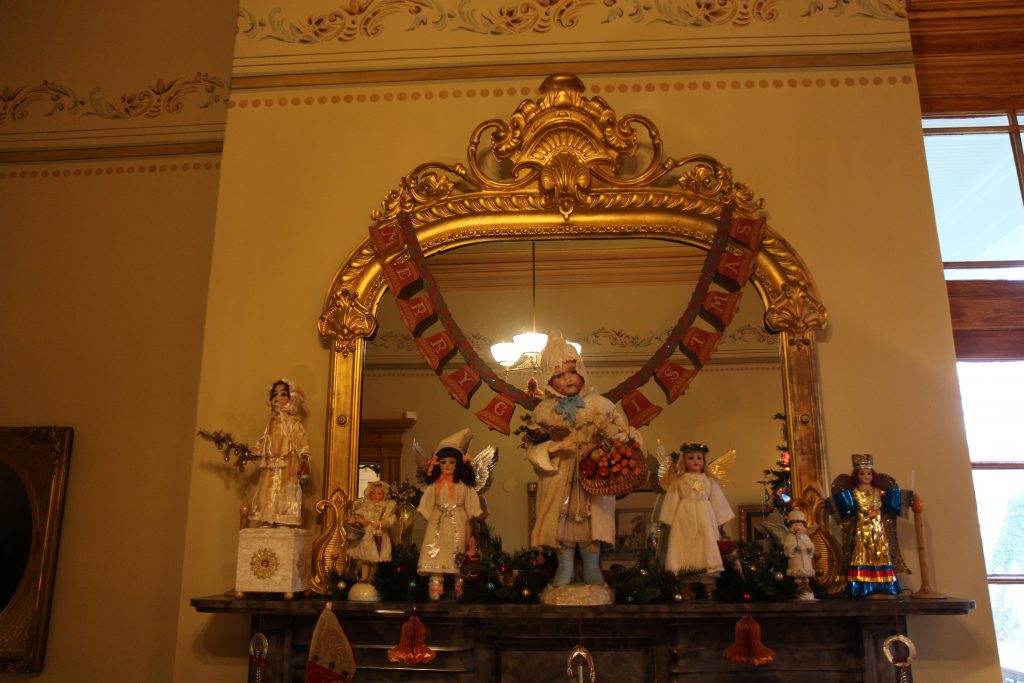
Johnson said that while the idea of the American Christmas tree has been around long enough to sort of absorb a lot of understandings of the holiday, just as it’s always been, the holidays are mostly about the people who are celebrating them.
“There’s this continuity of our family heritage, that when we pull these out and we tell our children or our grandchildren what they are and where they came from, we’re transmitting culture. Most families will save things, and maybe they have on their tree things that are 50 or 60 years old that, again, have been used and part of the family and handed down. There’s, I think, a certain warmth in being able to put some of my parents’ or my grandparents’ ornaments on the tree, and a sadness when they get broken,” said Johnson. “When you collect old things like this, (there’s an understanding that) these things will outlive me. My wife and I — we’re just a custodians. We take care of it and pass it on and hope that the next person that gets them has the same love for it and takes care of it. That’s how I’ve got an angel from 1810, that’s how I got a nativity from the 1700’s. Somebody has taken care of it for hundreds of years, and it’s just my turn to take care of it and pass it on to somebody else that will enjoy it, put it on display, share it.”
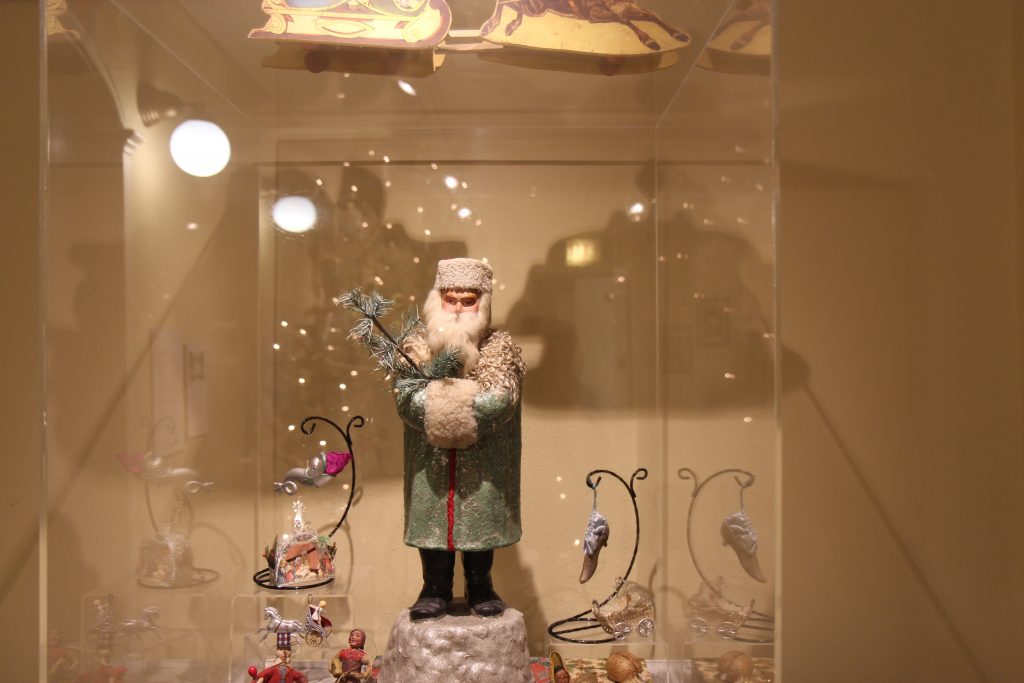
The Decorative Arts Center of Ohio is open Tuesday through Friday 10 a.m. to 4 p.m. and Saturday through Sunday 1 p.m. to 4 p.m. Admission is always free. The Decorative Arts Center is located at 145 East Main Street in Lancaster, OH.
Special Events:
Sunday, December 15, 2 p.m.
Curator’s Talk: Join Curator Dr. George Johnson for a lecture on the history, customs, and traditions of the holidays with Ohio Presidents. Dr. Johnson will guide us through the different trees and decorations from the times of the eight Presidents from Ohio. RSVP 740-681-1423

